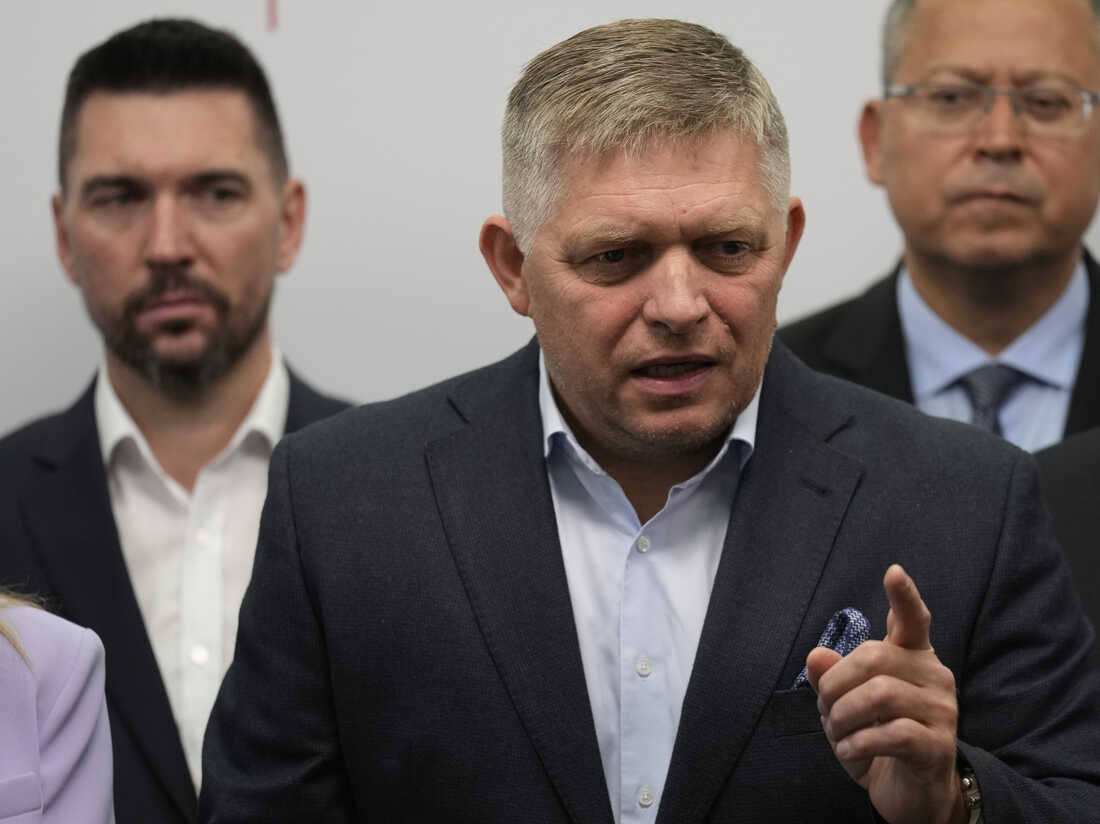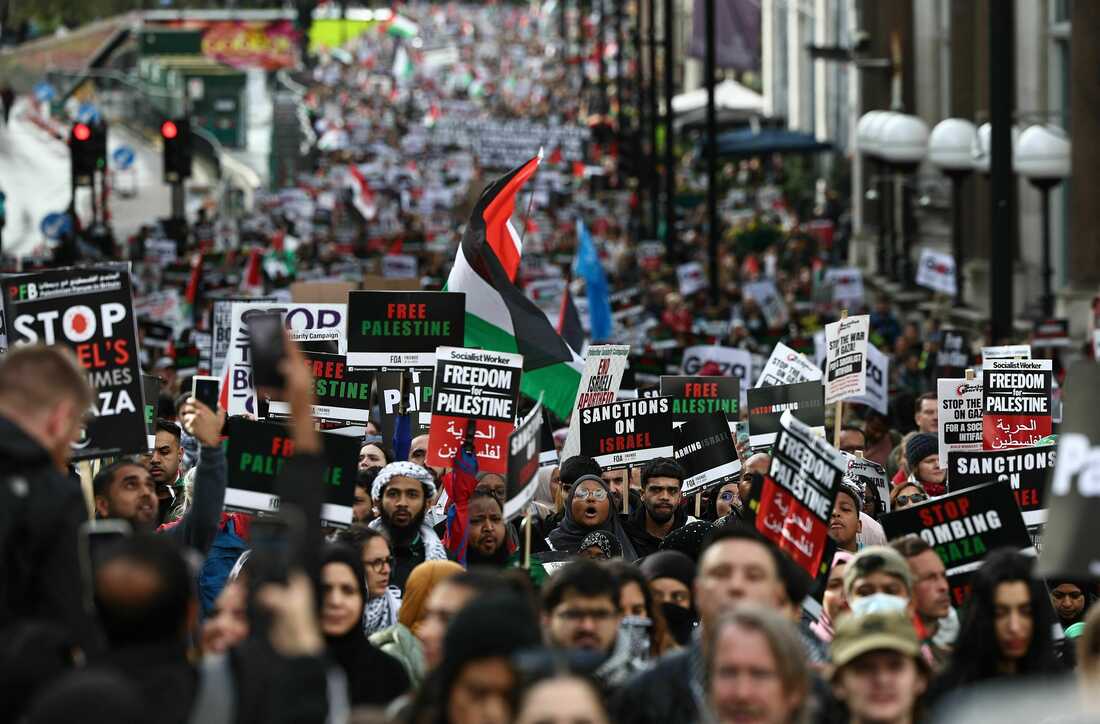Worry and concern follow pro-Kremlin candidate's victory in Slovakia election
By Rob Schmitz
Chairman of Smer party Robert Fico (center) addresses reporters in Bratislava, Slovakia, on Sunday. Darko Bandic/AP hide caption
toggle caption Darko Bandic/APChairman of Smer party Robert Fico (center) addresses reporters in Bratislava, Slovakia, on Sunday.
Darko Bandic/APBERLIN — As Slovakia's election winner Robert Fico begins talks to establish a coalition government, officials in the European Union and NATO — along with people throughout Slovakia's civil society — are worried about how Fico's pro-Russian, anti-American Smer ("Direction" in Slovak) party may govern.
Fico — who's previously served twice as prime minister — campaigned on ceasing all military support for Ukraine, with the slogan "Not a single round" becoming a popular refrain of his party. He repeatedly urged Kyiv to begin peace negotiations with Moscow and claimed the United States played a role in starting the war.
Fico's pledge to stop all military aid to Ukraine, however, may lack any real-world impact, as observers say Slovakia has already exhausted much of its weaponry in helping Ukraine over the past two years.
, "Guess who's back!" and adding, "Always good to work together with a patriot."Cracks are beginning to show in the European Union's bedrock of democratic principles
The European Union has been watching developments in Slovakia closely, worried that after democratic declines in Hungary, another of its eastern European members will pursue policies that run against the bloc's principles.
"And depending on how the elections in Poland work out, we will have possibly three countries in the region where democratic checks and balances would be disturbed and where policies typical for illiberal democracies would be adopted, and that would showcase a democratic decline in the region," says Katarina Klingova, senior research fellow at the Center for Democracy and Resilience at the GLOBSEC Policy Institute in Bratislava, the Slovak capital.
Political analysts speculate that Fico may team up with both Hlas — which split away from Smer three years ago — and the Slovak National Party, which received a bit under 6% of the vote, to form a governing coalition.



